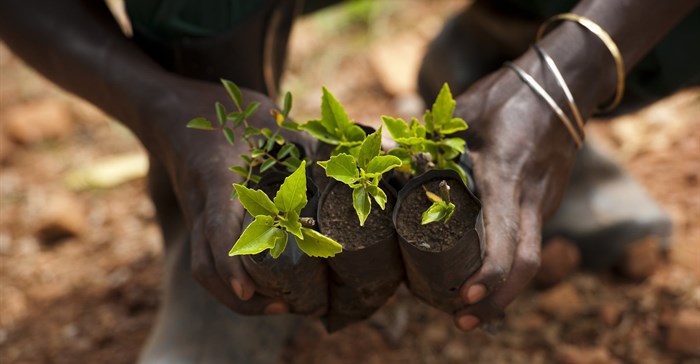Using agriculture to help boost job creation, investment in Mozambique

The Liquefied Natural Gas (LNG) projects in the Rovuma basin will ultimately place Mozambique on the list of the five largest producers and suppliers of this energy resource in the world, and it holds the potential to boost various other sectors in the country, particularly in agribusiness, by expanding its market, as well as potentially supporting the emergence of a domestic nitrogen fertilizer industry from sub-products of LNG manufacturing process.
At the briefing, SBM’s chief economist Fáusio Mussá highlighted to the delegates bank's experience in agribusiness, and its eagerness to support the Mozambique government’s Sustenta project, promoted through the Ministry of Agriculture and Rural Development to leverage and boost the agribusiness sector in the country.
Sustenta is an integration project which aims to create and improve the linkages amongst the sector’s value chain players, in order to boost the country’s production volumes and enhance the competitiveness of its agricultural sector.
The project includes the following integrated components:
• Technology transfer,
• Market linkages,
• Production mapping and planning,
• Infrastructure development,
• Environmental and social practices and
• Production subsidies.
The World Bank has recently committed USD500m to support the project, following an e-meeting held with President Nyussi.
"During the pilot phase, Sustenta was implemented in two provinces (Nampula and Zambézia), and from this year on it will be implemented throughout the country. The goal is to induce agricultural transformation towards a more market-oriented agriculture, with a strong impact throughout the sector including on smallholder farmers and medium and large agriculture companies," said Mr. Mussá.
Mozambique is one of the bank’s key focus countries in the agriculture sector, where it sees opportunity to improve and extend linkages within the agribusiness value chain – from input suppliers and primary agriculture to agro-processing/value addition, exports, logistics, warehousing and more.
"Our main objectives are to address fragmented value chains, add a funding source to the sector and support Mozambique’s food security, employment creation and foreign exchange revenue through exports," says Louis van Ravesteyn, head: agribusiness for Pan-Africa at Standard Bank Group.
The bank is one of the few banks in the country directly involved in several agricultural sub-sectors such as grains (corn for the production of beer and feed for the poultry industry), cassava (for the production of beer), sugar (conventional and organic), poultry, tobacco, and banana, among others. "We have a dedicated agribusiness team, which is comprised of sector specialists, who understand the key commodities, and subsequent commodity value chains. The team has successfully supported various landmark agriculture projects over the years," says van Ravesteyn.
By supporting this sector, the bank believes that it will also trigger a positive impact on other related and associated industries including transport, logistics, technology, wholesale and retail, as well as promoting rural and country development.
The bank uses its remote sensing technology to support farmers in Mozambique in improving crop production and increasing yields. It is also developing digital solutions to improve access to market for emerging farmers and bring efficiencies in the "last mile" – the transaction between buyers and smallholder farmers.
"The importance of mechanisation and good agronomical practices remain critical to improving production and yields. Infrastructure development of road and communication networks, electricity, water and irrigation, and knowledge transfer, are also essential to facilitating transformation of African agribusiness," concludes van Ravesteyn.










